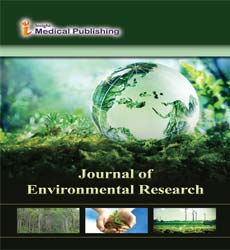Environmental and performance study of diesel engine powered with waste oil biodiesel and its blends
Abstract
An experimental study has been done to examine the performance and emission of a diesel engine using different blend ratios of waste oil biodiesel (20 %, 40 %, 60 %, 80 %, and 100 %) at different engine speeds, namely 500 rpm, 750 rpm, 1000 rpm, 1250 rpm, and 1500 rpm. At each speed, the engine was operated at no load, quarter, half, three quarters, and full load for different blending ratios. The performance parameters evaluated include Brake Power (BP), Brake Mean Effective Pressure (BMEP), brake specific fuel consumption (BSFC), air to fuel ratio (AFR), excess air factor, brake thermal efficiency, volumetric efficiency and the temperature of exhaust gas whereas exhaust emissions include specific emissions of O2, CO, CO2, and NOx. These parameters were assessed in diesel engine commonly utilized in the agriculture sector. Biodiesel blends result in a decrease of brake power by 30.8 %, decreases in air to fuel ratio by 18 %, decreases in brake thermal efficiency by 21 %, decreases in volumetric efficiency by 10.7 % and increases in brake specific fuel consumption by 32.18 %. The temperature of exhaust gas increases with the biodiesel fuel blends. Specific emission of O2, CO, and NOx increases with increasing the percentage of biodiesel in fuel blends. Specific emission of CO2 decreases with increasing the rate of biodiesel in fuel blends. The results suggest that biodiesel obtained from waste oil could be a decent substitute to diesel fuel in the diesel engine.
Open Access Journals
- Aquaculture & Veterinary Science
- Chemistry & Chemical Sciences
- Clinical Sciences
- Engineering
- General Science
- Genetics & Molecular Biology
- Health Care & Nursing
- Immunology & Microbiology
- Materials Science
- Mathematics & Physics
- Medical Sciences
- Neurology & Psychiatry
- Oncology & Cancer Science
- Pharmaceutical Sciences
